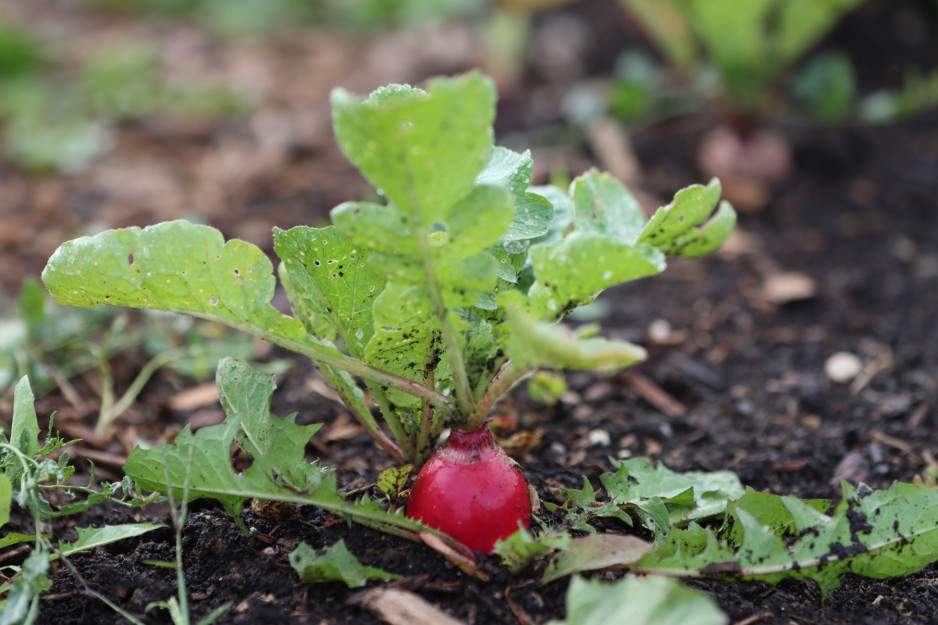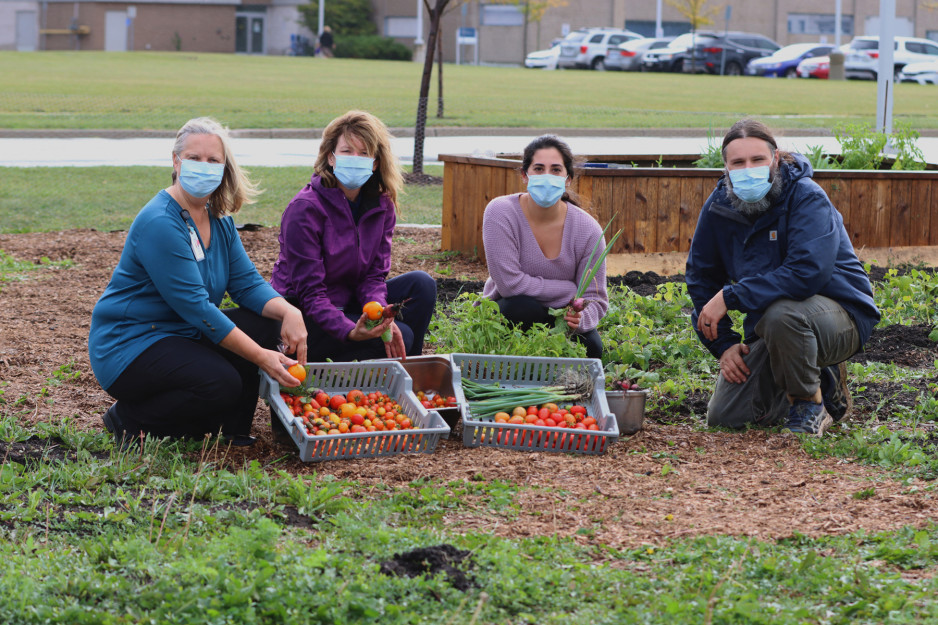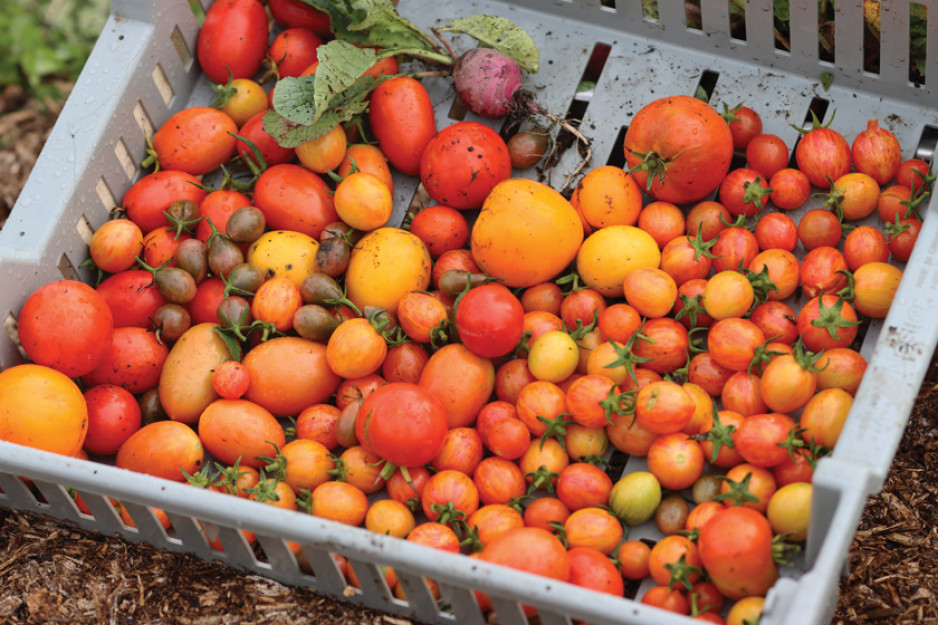Growing partnerships
St. Joseph’s Food and Nutrition Services recently teamed up with Urban Roots London to create a pilot garden at Parkwood Institute. The collaboration is part of St. Joseph’s Nourish Project, with the goal of harnessing the power of food to build health for people and the planet.
Snow might be in the forecast but St. Joseph’s Food and Nutrition Services (FNS) Team is still reaping the benefits of a pilot garden at Parkwood Institute this past summer.
During the summer months, members of the FNS Team created a 3128 square foot garden in partnership with Urban Roots London, who developed, planted and maintained the crops.
Located on hospital grounds, the garden produced a variety of herbs and vegetables, including tomatoes, potatoes, radishes, green beans and green onion - bringing a farm-to-table experience for residents and patients at St. Joseph’s.
“The garden is part of a larger initiative called St. Joseph’s Nourish Project,” explains Deana D'Ambrosio, FNS coordinator and project lead. “The garden allowed us to test growing foods on-site and learn how we can better support our menu planning and offerings to patients and residents. Through the garden, we also explored cost savings and the reduction of waste, including packaging, associated with harvesting our own foods.”
In 2021, the FNS team was one of seven organizations selected to join Nourish Leadership’s two-year Anchor Collaborative Program. Nourish Leadership is a national initiative that supports health care to harness the power of food to build health for people and the planet. One of St. Joseph’s key goals is to implement strategies and sustainable food practices that can positively impact climate and community well-being through food in health care.
Deana adds that St. Joseph’s Nourish Project also strives to build stronger community partnerships to improve dietary satisfaction and overall health of our patients and residents.
Urban Roots London, a non-profit organization that revitalizes underused land in London for agriculture, helped create and maintain the garden. Part of their mission is also to help address climate change on a local level, provide new models of sustainability, share knowledge and address inequalities in the food system.
“It’s been great to work alongside St. Joseph’s and help them bring more sustainable practices across their organization,” says Richie Bloomfield, Director and co-founder of Urban Roots London. “We are excited about the work being done at St. Joseph’s and happy to lend our expertise and time to help them produce fresh menu options.”
And have the results been favorable? You just have to ask St. Joseph’s patients and residents who are enjoying the fruits of their labour.
“One of the biggest rewards is hearing positive feedback from patients,” says Michelle Stranges, Nourish Project team member. “We hear comments such as, ‘wow, this tastes like a real tomato!” This is the result of being able to grow and provide fresh menu options from our garden, without the delay of having to ship items first.
To date, the project has garnered more than 90 kilograms of produce since planting began in late June. The vegetables and herbs provide garnishes, salads, side dishes and entrees for patients and residents. A final harvest of carrots, beets, radishes and cabbage will take place at the end of November before more snow arrives.
“It’s been a very rewarding experience,” adds Michelle. “We are excited to work with local organizations, including Urban Roots, to build partnerships that will ultimately benefit people and our planet.”
Did you know?
St. Joseph's Nourish Project believes that food is fundamental to our patients, residents, community and planetary health and well-being. Key goals of St. Joseph’s Nourish Project include:
- Reduce food waste and donate overage to the community where possible
- Support Ontario farmers by buying local
- Test the potential of growing and producing foods on-site
- Enhance food philosophies including ‘food first’ and ‘food as medicine’
- Reduce packaging and increase composting
- Continue to enhance patient and resident food and dietary satisfaction


